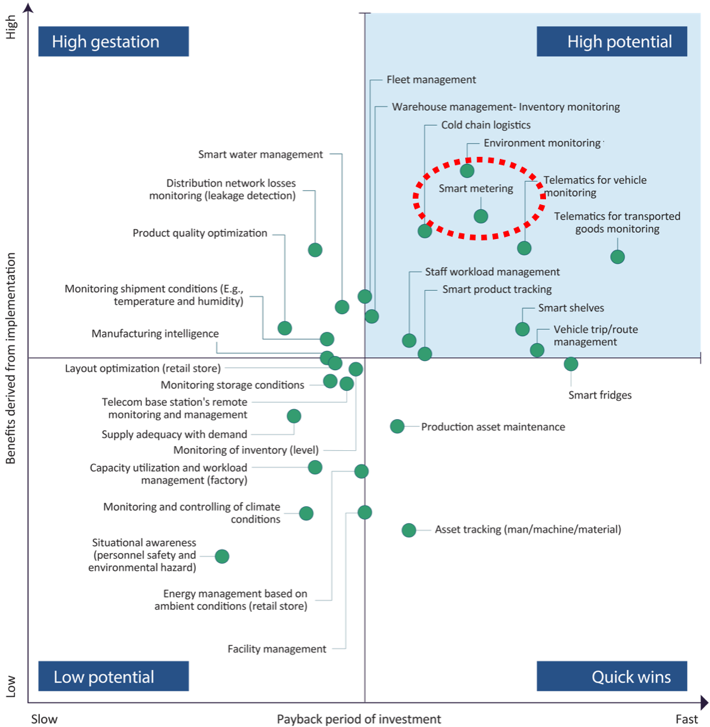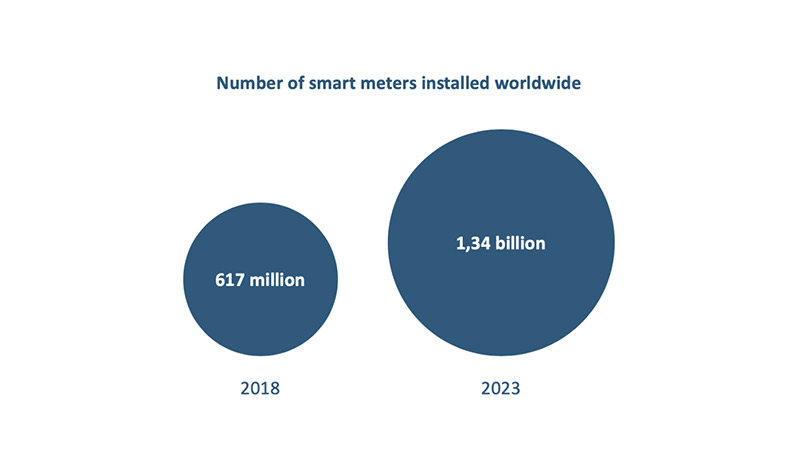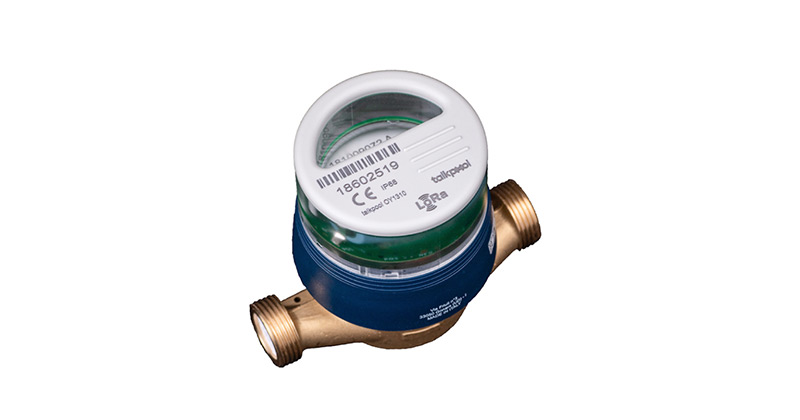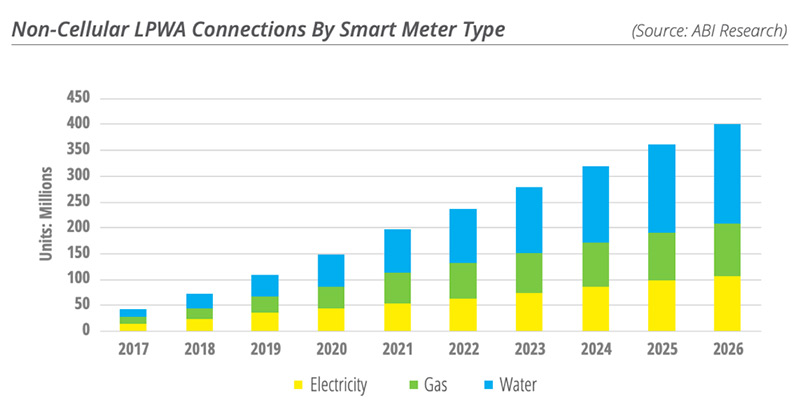State of the market: smart metering
Talkpool Article, August 21st, 2019
One of Talkpool’s key focus areas within its Internet of Things business, is that of smart metering. Talkpool’s development of a full line of smart water meters understates this focus. But how large is the potential for these smart meters actually?
Smart meters are meters that are connected to the internet and periodically report the consumption of utilities such as water, electricity and gas. This replaces traditional meters where someone would have to manually read out the measured values. Smart metering has been marked by Cap Gemini as a high potential use case, meaning it provides organizations large benefits with a quick payback of investment period.

Market forecasts
The smart metering market is also growing very rapidly. In 2018 there will be an installed base of 617 million smart meters and by 2023 this install base will double to reach 1.34 billion meters. Energy utilities drove market demand for smart meters in 2018, however, future demand will be driven by water utilities.” (ABI Research). Talkpool enables IoT solutions for all types of smart metering, for example energy utilities. However, the company has focused on the area of smart water metering, with the development of the hardware for a full line of smart water meters. Over 60 million smart water meters were shipped in 2017, a number which is expected to double by 2024 (IHS Markit). These forecasts reaffirm Talkpool’s choices relating to where to play into the IoT market.

Strategic partnership
Talkpool’s smart water meters have been co-developed with B Meters, an Italian company specialized in water meters, with a longstanding and proven track record. B Meters ships around 2 million water meters annually, an increasing part of which will be the newly developed smart water meters. This strategic partnership enables market penetration, positioning Talkpool well for the upcoming expected market growth.
Drivers for market adaptation
The main application of smart meters is that of revenue collection (meter to cash). This allows utility companies to bill their customers without any manual meter reading having to be done, saving time and improving accuracy. It is also applied by multi-tenant building owners, who obtain accurate consumption data per tenant from the smart water meters. Upon this, they can split the main bill they receive by the utility company, in a fair way among their tenants.
A second use of smart water meters is that of non-revenue water reduction. Non-revenue water consists of for example leakages, water theft or inaccurate billing. Smart water meters can efficiently prevent this, which helps water utility companies in controlling their water balance. This is supported by alarm functions of the smart water meter, such as anti-fraud detection mechanisms.
Leakage detection also helps consumers to quickly detect water leakages in-house, to avoid costly bills and potential water damages to their building. Traditionally these leakages could hardly be captured in an effective way, especially in the case of leakages that are hidden from sight. Nevertheless, something as simple as a leaky toilet can amount to two bathtubs full of water. Smart water meters allow for customer focused solutions like this and more.

Internet of Things technology
Talkpool’s smart water meter product line is based upon LoRaWAN, an LPWAN technology. This is excellently suitable for smart water meters, as it allows for the deployment of large numbers of sensor devices that have a long battery life, at low cost. About LoRaWAN as a technology for smart metering is said:
“…the communication network requires small payloads of data in the tens of kilobits and low monthly data throughputs. In addition, most applications for metering on the utility network have a greater tolerance for latency. Only specific use cases—like breakers for electricity, prepayment systems, or valve control—can justify a need for low latency. As a leading LPWA technology, the LoRaWAN™ protocol offers some of the best capabilities for addressing current and future smart utility distribution and automation system requirements.”
“Connecting utility assets using LoRaWAN”, ABI Research

This article shows that smart metering has great potential, as market forecasts are looking bright and multiple applications are driving the market. Talkpool is well positioned to benefit optimally from this market growth and will continue to have smart metering as a focus area within its IoT business. Talkpool’s LoRaWAN smart water meters can be found here: http://talkpool.com/category/offering/lora-wan-sensors/
